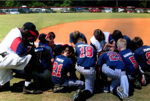The morning of Nov. 28, 2018, calls were reaching transplant hospitals in Charleston; Nashville, Tenn.; and Charlotte, all with disastrous news: Physicians at each of the centers had just unknowingly given their patients organs with incompatible blood types.
In all three instances — a heart in Charlotte, lungs in Charleston, a liver in Nashville — medical teams rushed to save their patients' lives.
Two of the recipients survived after physicians did second transplants. Allen Holliman, an Aiken man with pulmonary fibrosis, died at the Medical University of South Carolina in Charleston.
It all stemmed from the same problem. People affected by the ordeal allege in lawsuits that the North Charleston-based nonprofit We Are Sharing Hope SC did not get the two required tests done to confirm a South Carolina donor’s blood type before their organs were matched to patients and shipped.
We Are Sharing Hope SC is one of 57 organizations like it across the country. The alleged mix-up in South Carolina showcases the life-and-death role of these organ procurement groups and highlights the human cost that can come if the job isn't done correctly.
In Washington, D.C., meanwhile, a debate was brewing about accountability of these stewards of organ donation. Advocates believe these nonprofits are missing thousands of possible organs to transplant.
Bipartisan Congressional committees have cited The Post and Courier's reporting as they continue their investigations into the nation's organ procurement system. In December, a U.S. House oversight committee announced it would open an investigation into We Are Sharing Hope SC and 10 other organizations like it across the country.
The congressional investigations come not long after regulators overhauled how they would measure success for these kinds of organizations, all of which are nonprofits that work under guaranteed regional monopolies in the organ-sharing business.
A new federal rule laid out new, simple metrics, and it rated every organization in the country. The score We Are Sharing Hope SC got, based on 2018 numbers, lands it in the bottom tier of performers. The Centers for Medicare & Medicaid Services says it believes if every organization hits its goals, between 5,600 and 7,300 additional organ transplants could happen every year. And for those that can't improve their scores, the agency is threatening to put the organization out of business.
While he declined to comment on the pending lawsuits, David DeStefano, CEO of We Are Sharing Hope SC, said in an interview he welcomes the new metrics, and improvements at the organization have already been made since 2018. He said the nonprofit facilitated more donations in 2020 than any other year in its history, and is on the path to meeting the government's goals.
"We feel very strongly that if we live that mission every day in South Carolina, then we'll meet any metrics that are put before us," DeStefano said. "We just remain committed to be the best entity we can in the state, and to serving the community as best we can."
Sharing Hope has fully cooperated with the investigation, he said.
Fatal error
Ykeiah Lawrence awoke in the middle of one August night feeling like she was having an asthma attack. But her condition was far more serious.
Doctors told Lawrence her heart was enlarged, the result of a condition called cardiomyopathy that makes it hard for the heart to pump blood. She needed to give birth to her daughter that same night, by C-section.
But even after the birth, Lawrence said her condition didn't improve. Instead, it progressed until her medical team told her she would need a new heart on Nov. 3. The news that a heart had been found for her came just weeks later, as doctors tried multiple treatments to improve her worsening condition.
The donor was a woman who had been admitted to Grand Strand Medical Center in Myrtle Beach as a trauma patient on Nov. 24, 2018, and had type A blood. The hospital gave her a massive blood transfusion in an effort to save her life, which would later muddle the results of blood testing, according to the lawsuits. Transplant doctors operated on the belief that the donor had type O.
The problem was that Lawrence has type B-positive, which is compatible with type O. Two other people desperately hoping for a transplant, Allen Holliman and Joe Patterson, each had type O.
Organ procurement organizations like We Are Sharing Hope act as middle men, facilitating much of the complicated system of organ transplant. The nonprofits recover organs and distribute them to waiting patients; part of their job is to secure two blood tests to make sure organs and patients match. They are also advocacy groups, working to convince people to agree to be donors and lending support to donor families.
Lawrence, then 26 and a new mother to a 2-month-old daughter, didn't wake up until after she had rejected the first heart and a second transplant had been done. A rehabilitation process began. She made it home from the hospital for Christmas Eve, but Lawrence still had milestones to reach. She couldn't walk at first, and holding her daughter was a challenge. It would be another seven months before she returned to her job as a kindergarten teacher in the North Carolina public school system.
Lawrence said she and her husband didn't know for sure that other people were hurt in the error until she heard from lawyers.
"We never knew for sure that anybody else got any of the other organs," she said. "It was really a big shock to know it didn't just happen to me."
Now, We are Sharing Hope SC is facing three lawsuits, one each from Patterson, Lawrence and the wife of Allen Holliman. Lawrence filed her lawsuit May 3.
Atrium Health, the Charlotte-based system that operates the hospital where Lawrence was treated, is also a defendant in the lawsuit. It declined to comment on the litigation.
Transparency, accountability
The nation's organ networks "can easily hide or manipulate their outcome measures in the current system," a group of five former federal agency leaders wrote in a January report. They point out that no organ procurement organization has ever lost its certification.
The current system won't be in place for much longer. With the new federal rule, if the organizations with poor scores don't improve by 2026, they could lose their contracts with the government.
The changes have elicited mixed reviews among the 57 nonprofits.
DeStefano and We Are Sharing Hope SC weighed in with a letter in February 2020 expressing concern "that the overarching principles of the proposed metrics would ... prioritize metrics over mission" and arguing that what works in one part of the country may not be applicable to South Carolina or other regions.
DeStefano followed up in a letter this March, writing that he supports the effort to implement new standards and agrees that organizations that consistently perform poorly should be put on a path to decertification.
While We Are Sharing Hope SC scored in the top half of the pack in its donation rate, or how many organs were donated by people who had consented to give, in 2018. But in its transplant rate, which measures how many organs were actually recovered from eligible patients, its score was at the bottom.
The association that represents most organ procurement groups maintains the system in place already works to encourage improvement through reporting to federal agencies and oversight from boards of directors.
"There are a lot of ways that we're accountable and transparent to others," said Jan Finn, CEO of the Midwest Transplant Network and incoming president of the nationwide Association of Organ Procurement Organizations.
Finn said she supports the new rule. Her association has pointed out transplant hospitals also play a major role in the success of the organ-sharing process.
Donna Cryer, CEO of the patient advocacy group the Global Liver Institute, said decades of promises from organ procurement groups have not brought improvement. For years, she said, there was little appetite to change the complex system. Now, people who had been ignored by the system finally have a voice, she said.
Cryer, who is also a transplant recipient, testified on the topic at a hearing of the House Oversight subcommittee on May 4. There, members of the U.S. House are targeting financial waste, abuse and fraud.
Cryer said the rule and committee investigations have put organ procurement organizations on notice that they actually have to change their ways and improve, "not just give lip service."
"I think it's all in the execution," she said.
She hopes regulators will follow through on promises of tough oversight.
Meanwhile, as of June 2, 1,457 people are waiting for an organ in South Carolina.
"type" - Google News
June 06, 2021 at 07:00PM
https://ift.tt/3cnTrTT
After blood-type error, SC organ network faces investigation, pressure to improve - Charleston Post Courier
"type" - Google News
https://ift.tt/2WhN8Zg
https://ift.tt/2YrjQdq
Bagikan Berita Ini


















0 Response to "After blood-type error, SC organ network faces investigation, pressure to improve - Charleston Post Courier"
Post a Comment